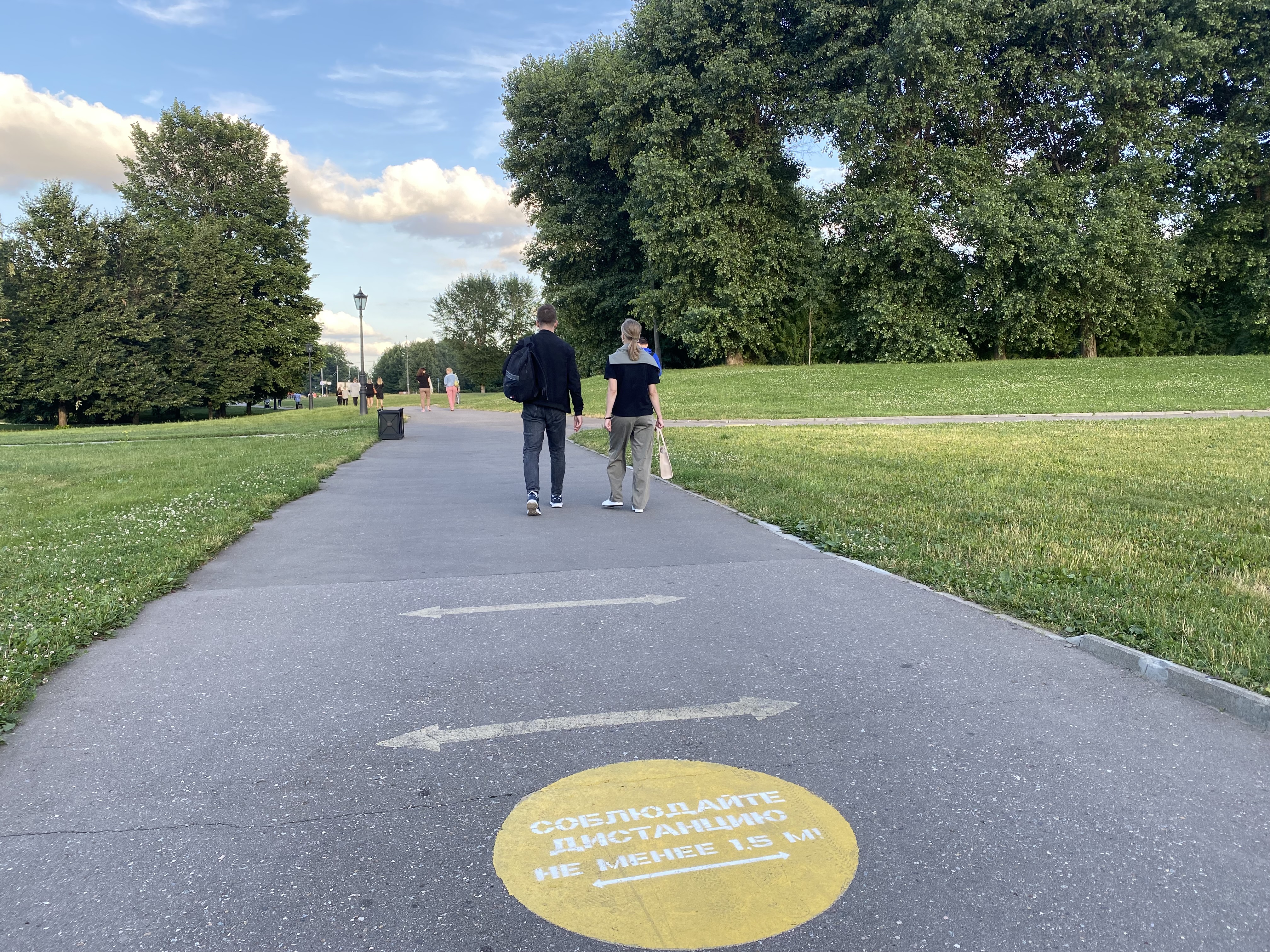SUN lab researchers in collaboration with Australian and German colleagues studied the role of contact with nature during and after COVID-19 pandemic in Moscow. Scientists from RUDN University, the University of Western Australia, Helmholtz-Centre for Environmental Research and Wageningen University conducted the research that aims to explore the pathways and implications of human-nature interactions during and after the COVID-19 pandemic and how health problems and pandemic challenges can be mitigated through contact with nature.
The finding will help to find out what novel actions and adaptation strategies can be established that can have positive outcomes for both humans and nature. The study was supported by the Russian Science Foundation grant; the results were published in the journal Land in May, 2022.
The article discusses the reasons that attract people to visit urban green spaces (value of urban green spaces, their perceptions, ways of contact with urban nature, etc.). It also analyses the effects of social isolation on the usage and perception of urban green spaces during and after the COVID-19 pandemic. The research revealed current needs for urban green spaces and their role in adaptation of urban development and greening strategy. For this purpose, an online questionnaire survey among residents of Moscow was conducted in April–July of 2020 when restrictive measures were imposed in the city in response to the COVID-19 pandemic. Additionally, non-participatory observations and photo documentation were used to supplement the data on urban green spaces visitation and use. The GIS mapping method was applied to analyze the urban green spaces provision (its availability and accessibility). Moreover, expert interviews were conducted aiming to explore the implications of the COVID-19 pandemic on the urban fabric and life of the citizens. The aim was to reveal the main tendencies that can be used in the adaptation of urban development plans, especially regarding urban green spaces and human-nature interactions.
The results showed that citizens – both survey respondents and experts – highly value urban nature as a tool for coping with COVID-19 challenges. They underlined a need for accessible urban green spaces, most notably for breathing fresh air, reducing stress, relaxing, and observing and enjoying nature. The survey also revealed the particular health effects resulting from the reduction of urban green spaces visitations due to COVID-19 restrictions. Several changes in human-nature interactions were also observed: many respondents especially missed spending time outdoors and meeting other people. That highlights the fact that while urban green spaces normally provide places for social integration and socializing, during the COVID-19 isolation urban green spaces were especially valued in regard to physical health and well-being or self-recovery. Both respondents and experts expressed their opinions regarding the future development of urban green spaces network and how its structure and design should be adapted to the current challenges. The claimed preferences included the need for providing all residents equal access to urban green spaces in a time of pandemics and post pandemics.

